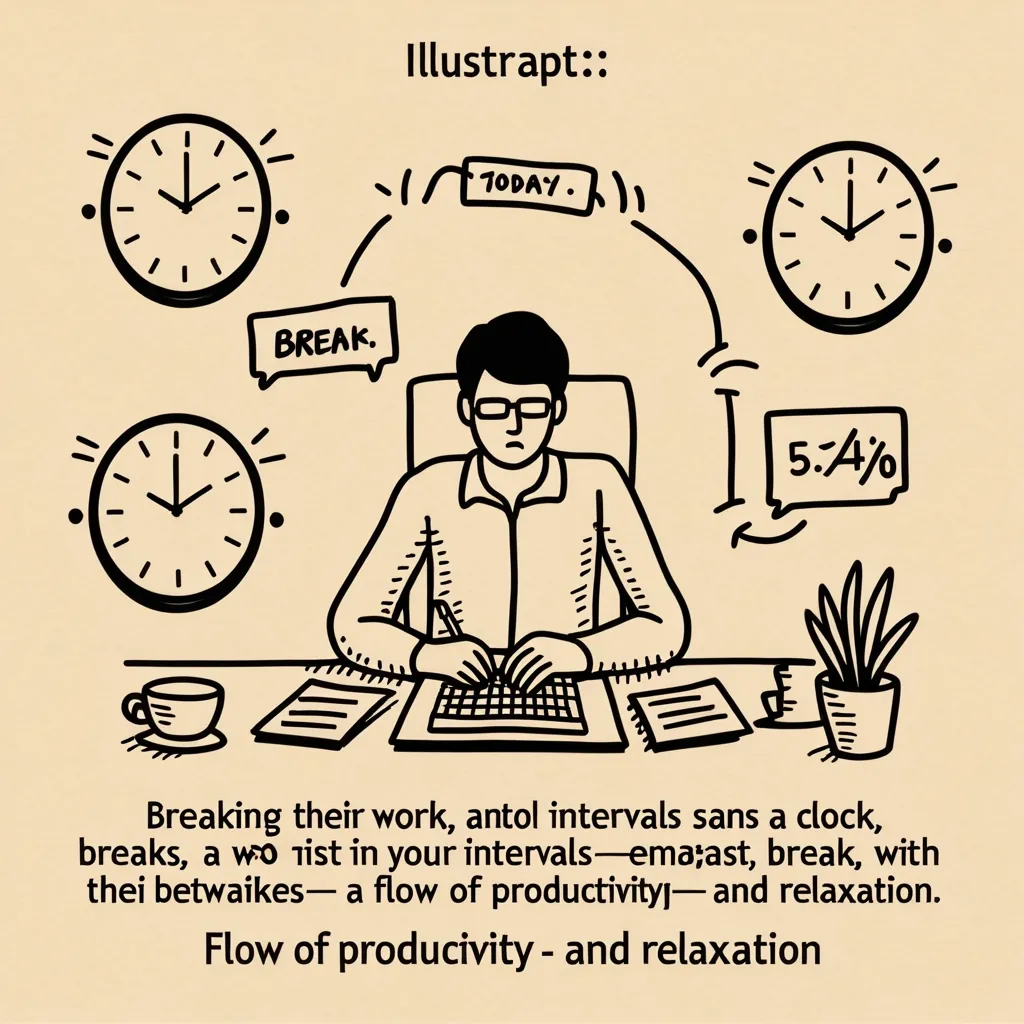Time is a precious commodity, and yet many of us find ourselves wasting large chunks of it without even realizing. You’ve probably had those days where you feel like you’ve been busy non-stop, but at the end, you’re left wondering what you actually accomplished. This frustrating experience is more common than you might think, and it’s often linked to a principle known as the 80/20 rule, or the Pareto principle.
The 80/20 rule suggests that roughly 80% of your results come from just 20% of your efforts. It’s a game-changer when you start applying it to how you manage your time. Think about it - if you could identify that crucial 20% of tasks that yield the most significant results, wouldn’t that revolutionize your productivity?
Let’s break this down a bit. Imagine you’re at work, tackling a million different things throughout the day. You’re constantly busy, switching from task to task, feeling like you’re being productive. But are you really? The truth is, a lot of what we do during our workday doesn’t contribute much to our overall goals. We get caught up in what feels important rather than what actually moves the needle.
So, how do you figure out which tasks fall into that vital 20%? It takes a bit of self-reflection and analysis. Try tracking your activities for a few days. Jot down everything you do, no matter how small it seems. Then, take a step back and categorize these tasks based on their importance and impact. You might be surprised to find that a significant portion of your time is spent on what we could call “pseudo work” - stuff that feels important but doesn’t really contribute much in the grand scheme of things.
For instance, if you’re a freelancer, you might spend hours each day checking emails and scrolling through social media. You might justify this as staying connected and on top of things. But in reality, these activities often eat up a huge chunk of your day without producing much in return. Instead, you could be focusing on tasks that directly impact your income or improve the quality of your work.
One effective way to apply the 80/20 rule is to dedicate a specific amount of time each day to your most important tasks. Some people swear by the “96-minute rule,” which involves setting aside 96 minutes (that’s 20% of an 8-hour workday) for focused work on your most crucial tasks. This uninterrupted block of time can seriously boost your productivity.
But here’s the thing - it’s not just about identifying the important tasks. It’s also about managing distractions. In today’s world, we’re constantly bombarded with notifications, messages, and interruptions. These distractions can derail your focus and tank your productivity. To combat this, you need to set clear boundaries. Maybe that means checking your email only once an hour, or setting specific times for meetings. Whatever it is, find a system that helps you stay focused on your key tasks without getting sidetracked by the non-essential stuff.
Now, let’s talk about something that successful people understand really well - time is more valuable than money. You can always make more money, but you can’t make more time. That’s why it’s crucial to use your time wisely. Think of it as an investment - you want to make sure you’re investing your time in activities that will give you the best returns.
Take Richard Branson, for example. He’s known for his ability to achieve a lot in a short amount of time. How does he do it? By prioritizing his time, focusing on the tasks that drive the most value, and delegating or eliminating the rest. It’s a strategy that’s worked pretty well for him, wouldn’t you say?
Another common time-waster is multitasking. We’ve all been there - trying to juggle multiple tasks at once, thinking we’re being super efficient. But here’s the kicker: research shows that our productivity actually drops significantly when we try to multitask. In fact, some studies suggest that productivity can plummet by as much as 40% when we’re trying to do two or more things at once. Yikes!
Instead of multitasking, try focusing on one task at a time. Not only will this improve the quality of your work, but it’ll also reduce the time you spend switching between tasks. It might feel counterintuitive at first, but give it a try. You might be surprised at how much more you can accomplish.
Planning is another crucial aspect of using your time effectively. It might seem like a waste of time to spend 10-12 minutes planning your day, but trust me, it can save you at least 2 hours of wasted time and effort. Start your day by identifying the three most important tasks you need to complete. Then, allocate specific times for each task, making sure you tackle the most critical ones first.
Now, let’s talk about everyone’s favorite time-waster: procrastination. It’s so easy to fall into the trap of doing the easy things first, isn’t it? But here’s the thing - those easy tasks often produce minimal results. The hard, uncomfortable tasks are usually the ones that yield the most significant outcomes. To avoid procrastination, try breaking down your tasks into smaller, manageable chunks. This makes the hard tasks feel less daunting and more achievable.
Have you ever heard of the “flow state”? It’s that magical state where you’re completely focused and immersed in your work. When you’re in a flow state, time seems to fly by, and you’re incredibly productive. To achieve this state, you need to eliminate distractions and create an environment that fosters focus. Maybe that means turning off your phone, logging out of social media, or finding a quiet workspace. Once you’re in this state, you’ll be amazed at how efficiently you can work and how high-quality your results are.
At the end of the day, managing your time effectively is about making conscious decisions about how you spend your day. It’s about valuing your time more than money, analyzing how you spend it, setting clear boundaries, and focusing on the tasks that truly matter. Remember, it’s the quality of your work that counts, not the quantity of hours you put in.
So, the next time you find yourself feeling busy but unproductive, take a step back. Ask yourself: “Am I focusing on the tasks that really matter?” Are you dedicating your time and energy to that crucial 20% that yields 80% of your results? Or are you getting caught up in the busy work that feels important but doesn’t actually move you closer to your goals?
By being intentional about how you use your time, identifying your most important tasks, managing distractions, planning your day, avoiding procrastination, and striving to achieve that flow state, you can maximize your productivity and achieve more in less time. It’s not about working longer hours - it’s about working smarter.
Remember, your time is your most valuable asset. Use it wisely, and you’ll be amazed at what you can accomplish. So go ahead, take control of your time, focus on what truly matters, and watch as your productivity soars. You’ve got this!






